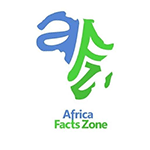Top Gas and Oil Exploration Companies in Africa – Africa Facts Zone

The following is a list of notable Gas and Oil Exploration Companies that are engaged in gas and oil exploration and production in Africa.
1. Sonatrach: Gas and Oil Exploration Companies
Sonatrach is Algeria’s national oil corporation, which is controlled by the government.
Today, it is the biggest oil corporation in Africa with 154 subsidiaries and is sometimes referred to be the first African oil “major.”
Sonatrach is the 12th-largest oil consortium in the world, with 154 companies working in all stages of the oil value chain, from upstream to midstream and downstream.
It made 175 billion Algerian dinars in net profit in 2002 on sales of 1,530 billion Algerian dinars.
The corporation contributes 30 percent of Algeria’s GDP with its 120,000 employees making it one of the biggest oil and gas exploration companies in Africa.
For the Algerian domestic market, it generates 206 million Tonne Oil Equivalent (ToE) annually. This includes 24 million ToE (or 11.7% of the total).
Algeria’s biggest oil field, the Hassi Messaoud, was operated by Sonatrach in 2006 and produced around 440,000 barrels of petroleum per day (70,000 m3/day).
On the other hand, Sonatrach is also responsible for the Hassi R’Mel oil field (north of Hassi Messaoud, south of Algiers) which produces roughly 180,000 bbl/d (29,000 m3/d).
Haoud Berkaoui/Ben Kahla, Tin Fouye Tabankort Ordo, and Ait Kheir are only a few of the big fields Sonatrach manages.
More than 3,900 kilometers (2,400 miles) of crude oil pipelines are operated by Sonatrach.
Crude oil is transported from the Hassi Messaoud field to export ports through the most major pipeline network.
Oil condensate and LPG pipeline networks operated by Sonatrach connect Hassi R’mel and other fields to Arzew.
Sonatrach plans to extend the country’s longest pipeline, the Hassi Messaoud-Azrew pipeline.
A second, parallel line will be built that will more than quadruple the current line’s capacity.
In countries like Libya, Mauritania, Peru, Yemen, and Venezuela, Sonatrach has made certain concessions.
2. Exxon Mobil: Gas and Oil Exploration Companies
Texas-based Exxon Mobil Corporation, stylised as ExxonMobil, is an American oil and gas conglomerate.
When Exxon and Mobil merged on November 30, 1999, it became the biggest direct descendent of John D. Rockefeller’s Standard Oil Company (formerly the Standard Oil Company of New York).
Exxon, Mobil, Esso, and ExxonMobil Chemical are some of ExxonMobil’s most well-known trade names. .
From 1996 to 2017, ExxonMobil fluctuated from being the first to the sixth biggest publicly listed business in the world in terms of market value.
In 2016, Forbes rated the corporation third on its list of the world’s largest publicly traded companies.
In 2017, ExxonMobil ranked as the Fortune 500’s tenth most profitable corporation.
According to Fortune’s 2018 rankings, the firm was the second-largest U.S. corporation in terms of revenue.
It ranks 14th in the world in terms of oil and gas reserves making it one of the biggest oil and gas exploration companies in the world.
As of the end of 2016, ExxonMobil has 20 billion BOE of oil reserves that were estimated to last for more than 14 years at the 2007 production pace.
ExxonMobil is the world’s seventh-largest refiner, with refineries in 21 countries with a daily refining capacity of 6.3 million barrels (1,000,000 m3).
Activities in Africa
Upstream activities are focused on Angola, Chad, Equatorial Guinea, and Nigeria, where it holds 0.4 million acres (1,600 km2) offshore, 46,000 acres (19,000 hectares), and 0.1 million acres (400 km2) offshore, respectively.
Liberia and the Ivory Coast will also be the focus of Exxon Mobil’s exploratory efforts.
After a series of disappointing findings in Madagascar, ExxonMobil halted its exploration activity there.
Also Read: MTN becomes the First African Company to enter the Metaverse
3. TotalEnergies
One of the world’s seven “supermajor” oil corporations, TotalEnergies SE was formed in 1924 and is headquartered in Paris, France.
All aspects of the oil and gas industry are covered by the company’s operations, which range from crude oil and natural gas exploration and production to electricity generation, transportation, refining, and the sale of petroleum products.
In addition to being a large-scale chemical producer, TotalEnergies is also an energy company.
La Défense, west of Paris, is where the headquarters of TotalEnergies are located, in the Tour Total. The stock of the corporation is included in the Euro Stoxx 50 index.
Forbes Global 2000 placed it the 29th-largest public corporation in the world, while Fortune Global 500 ranked it the 25th-largest firm of any kind, making it one of the biggest oil and gas exploration companies in the world.
Activities in Africa
- Total has downstream operations only in the following African countries: Botswana, Burkina Faso, Cameroon, Central African Republic, Chad, Equatorial Guinea, Eritrea, Ethiopia, Gambia, Ghana, Liberia, Malawi, Mali, Morocco, Namibia, Niger, Republic of Guinea, Senegal, Sierra Leone, Tanzania, Togo, Tunisia, Zambia, and Zimbabwe.
- It has upstream operations only in the following African countries: Angola, Libya, and South Sudan.
- It has upstream and downstream operations in the following African countries: Algeria, Côte d’Ivoire, the Democratic Republic of the Congo, Egypt, Gabon, Kenya, Lesotho, Madagascar, Mauritania, Mozambique, Nigeria, Republic of the Congo, South Africa, Swaziland, and Uganda.
4. Shell
Shell, one of the world’s biggest oil and gas “supermajors” ranked in the top 10 of the Fortune Global 500 since 2000 by revenue and earnings.
When the Royal Dutch Petroleum Company and The “Shell” Transport and Trading Company of the United Kingdom merged in 1907, Shell was born.
In a short period of time, the united business quickly overtook American Standard Oil as the world’s biggest oil producer.
As far back as 1929, Shell has been a major player in the chemical sector.
At one point in time, Shell was one of the “Seven Sisters,” a group of oil companies that controlled the world market for much of the 1940s and early 1970s.
Liquefied natural gas (LNG) was first commercially transported by sea in 1964 when Shell was a participant in the project (LNG).
Shares Expansion
In 1970, Shell purchased Billiton, a mining business, which it later sold and became part of BHP in 1994.
As of 11 February 2022, it has a market capitalization of £156 billion, making it the most valuable corporation listed on the LSE and making it one of the biggest oil and gas exploration companies in the world.
Royal Dutch Shell plc functioned as a partnership between the British and Dutch subsidiaries until it was merged into a single entity in 2005 when it became known as Royal Dutch Shell plc.
As of 2005, the firm had its headquarters in The Hague, its registered office in London, and two kinds of shares available to investors (A and B).
A and B shares were amalgamated in January 2022, the company’s headquarters were relocated to London, and the company’s name was changed to Shell plc.
There are several aspects of Shell’s business that are vertically integrated, such as oil and gas exploration and production; refining; transportation; distribution and marketing; as well as chemicals; generating electricity; and trading.
Shell has proven oil reserves of 11.1 billion barrels (1.76 billion cubic meters). In the United States, Shell USA is the company’s most important subsidiary.
Activities in Africa
In the 1950s, Shell started oil exploration in Africa.
Upstream oil operations are carried out in Algeria, Cameroon, Egypt (where the Rabi-Kounga oil field is located), Gabon, Ghana, Libya, Morocco, Nigeria, South Africa, and Tunisia; and in the downstream sector in 16 additional countries.
All except South Africa and Egypt were left out of Shell’s plan to sell its downstream operations in the continent in April 2010.
5. Chevron
Chevron is a global energy company based in the United States.
It is one of the successor firms of Standard Oil and operates in more than 180 countries.
Chevron is involved in every facet of the energy sector, from exploration and production of hydrocarbons to refining, marketing, and transportation of chemicals, as well as the generation of electrical power.
It has been a major player in global petroleum markets, as one of seven Sister companies that dominated from the mid-1940s through the 1970s.
Chevron was placed 27th in the Fortune 500 in August 2021, with a revenue of $94.7 billion and a market value of $190 billion, making it one of the biggest oil and gas exploration companies in the world.
Chevron was listed as the 61st biggest public business in the world by Forbes Global 2000 in 2020.
Fuels, lubricants, additives, and petrochemicals are all manufactured and sold by Chevron in the downstream activities of the company.
North America, the United States Gulf Coast, Southeast Asia, South Korea, and Australia are all key markets for this corporation.
On average, the business produced 791,000 barrels of net oil equivalent per day in the United States throughout the course of 2018.
Some of the main locations where Chevron conducts oil and gas exploration and production are the United States, Australia, Nigeria, Angola, Kazakhstan, and the Gulf of Mexico.
The company’s upstream division recorded net global production of 2.930 million oil-equivalent barrels per day as of December 31, 2018.
Activities In Africa
Chevron has a 40 percent stake in 13 concessions in the Niger Delta, both on and near the coast, in a joint venture with the Nigerian National Petroleum Corporation.
Two offshore concessions in Cabinda province, the Tombua–Landana development and the Mafumeira Norte project, managed by Chevron, are part of the company’s Angolan holdings.
It is also a major stakeholder in the Angola LNG facility, which is now under construction.





